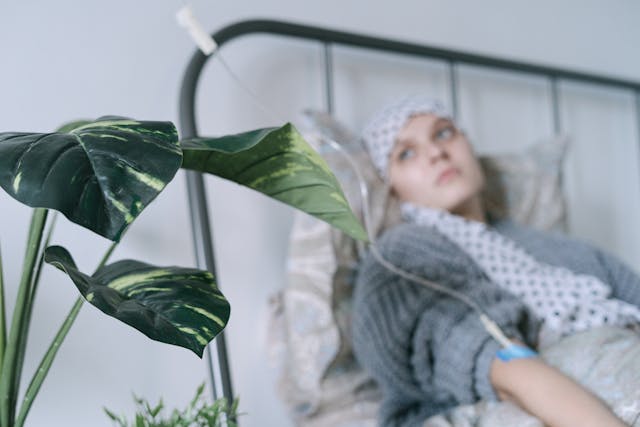When people undergo chemotherapy or radiation, the road to recovery can often feel overwhelming. Treatments to fight cancer are effective, but they often come with side effects that affect your physical and emotional state. Managing these side effects is an entirely different topic. Managing them is important because side effects are critical to maintaining a better quality of life throughout treatment. One promising approach is integrative oncology, which combines traditional types of cancer treatments with supportive care to help patients get through it.
Know the side effects
Chemotherapy and radiation therapy target cancer cells, but in the process, they also affect healthy cells. This often results in common side effects, namely:
- nausea and vomiting
- fatigue
- hair loss
- weakened immune system
- emotional stress
Such side effects can be challenging, but with the right strategies and support, they can be managed.
Holistic approach to care
A holistic approach addresses not only physical symptoms but also emotional symptoms. The emotional and psychological components of cancer treatment are just as important as the physical ones. That’s where integrative oncology comes in, which combines traditional medicine with complementary therapies such as nutritional counseling, physical activity and mental health care. This approach affects everything because by treating the whole person, not just the disease, patients can achieve better outcomes.
Nutrition and Hydration
Good nutrition is crucial during cancer treatment. Small, frequent meals can help combat nausea, while protein- and calorie-rich foods can boost energy levels. Adding ginger and peppermint to your daily diet can also help reduce nausea levels. Staying hydrated is just as important as supporting your body’s natural detoxification process.
Choose to work with a nutritionist who specializes in this area so they can help you with a plan tailored to your unique needs, ensuring your body is getting the nutrients it needs to heal.
stay active
Fatigue is a big side effect of cancer treatment, but staying active always helps. Mild exercise like yoga, walking, or stretching can improve circulation, lift your mood, and increase energy levels. It’s important to listen to your body and pace yourself. If you’re willing to put in the time, some teams, often including physical therapists, can recommend safe and effective exercise methods to manage fatigue without reaching the point of overexertion.
Coping with stress
As mentioned before, cancer not only affects the body but also the mind. People with cancer often feel anxious, fearful, or depressed. All of these are normal but should not be ignored. Practices like mindfulness, meditation, and counseling can make a huge difference. Support groups can also help you connect with people who understand exactly what you’re going through at a particular point in time.
Mental health care is an important component of integrative oncology, ensuring patients’ emotional well-being is fully supported.
complementary therapies
In addition to traditional treatments, complementary therapies such as acupuncture, massage, and aromatherapy can help manage side effects such as pain, stress, and nausea. However, these therapies are intended to complement but not completely replace traditional medical treatments.
Support system
No one should face cancer alone. A strong support system of friends, family and carers can make a big difference in someone’s journey. Don’t hesitate to express your needs or ask for help with daily tasks, no matter how small they are. Sometimes, you’ll find that just having someone listen to you can lighten your emotional load.
put it together
Reducing the side effects of chemotherapy and radiation therapy involves more than just medications. It’s about taking care of yourself. With the help of integrative oncology, patients benefit from a combination of traditional and supportive care that work together to promote healing.
Make it your mission to remember that this is your journey, so prioritizing self-care is an important part of the process. Small, manageable steps make a difference when you focus on what’s happening most: your recovery and health.

